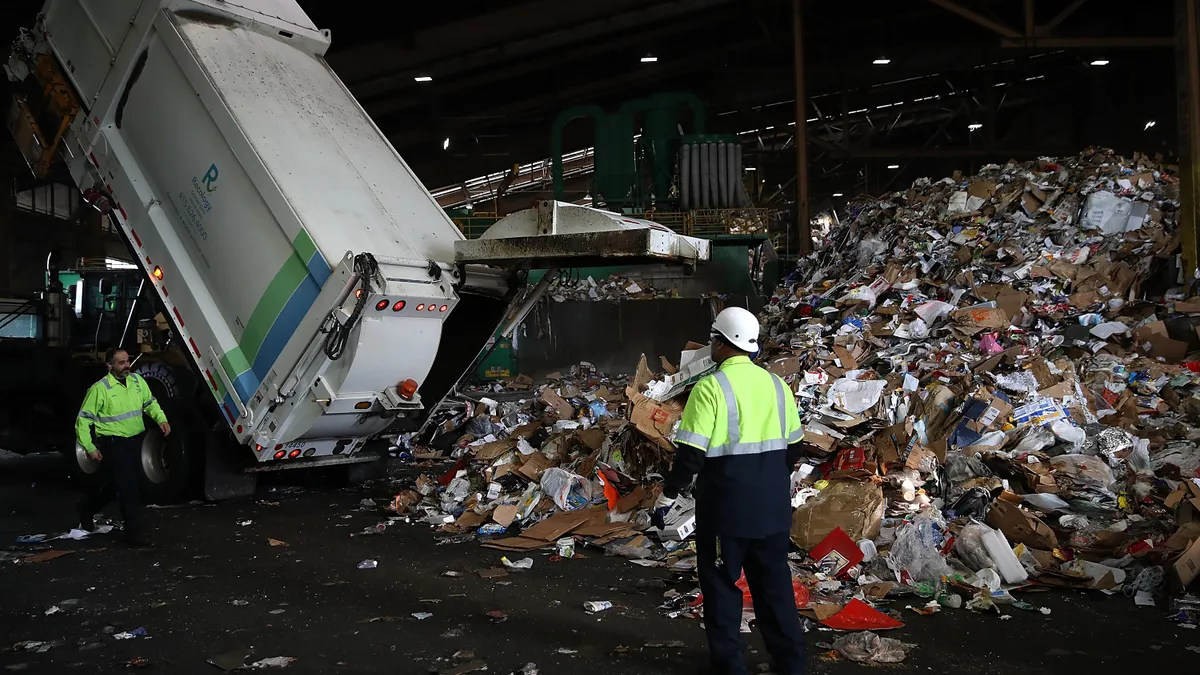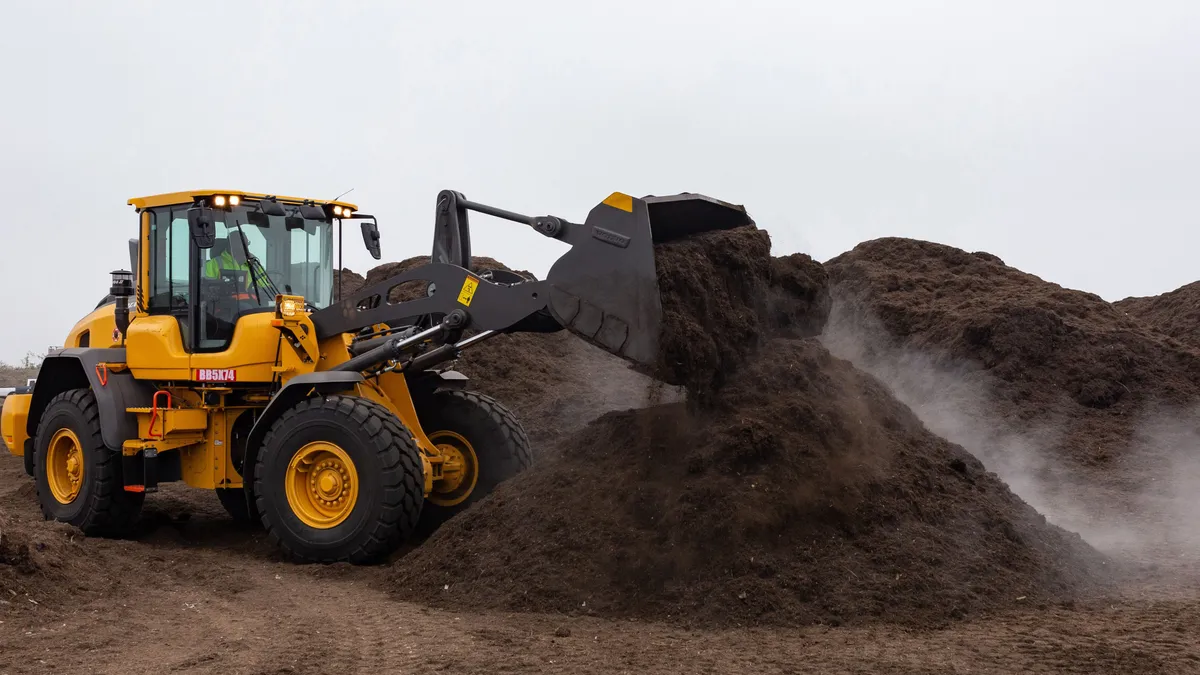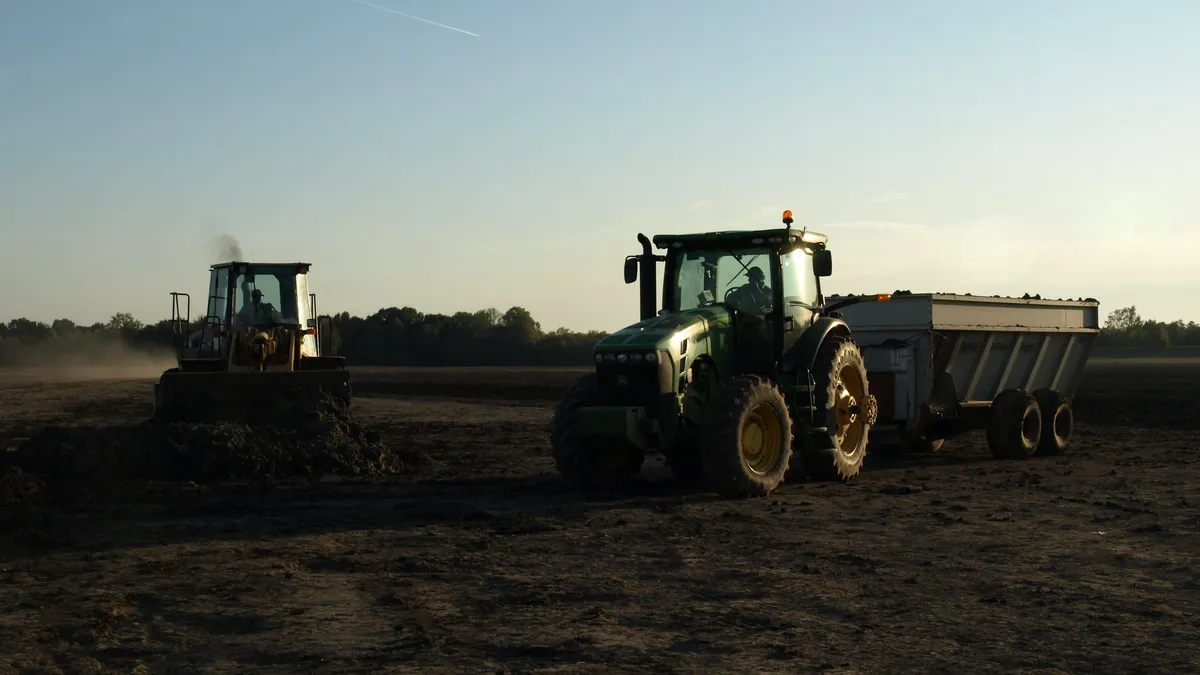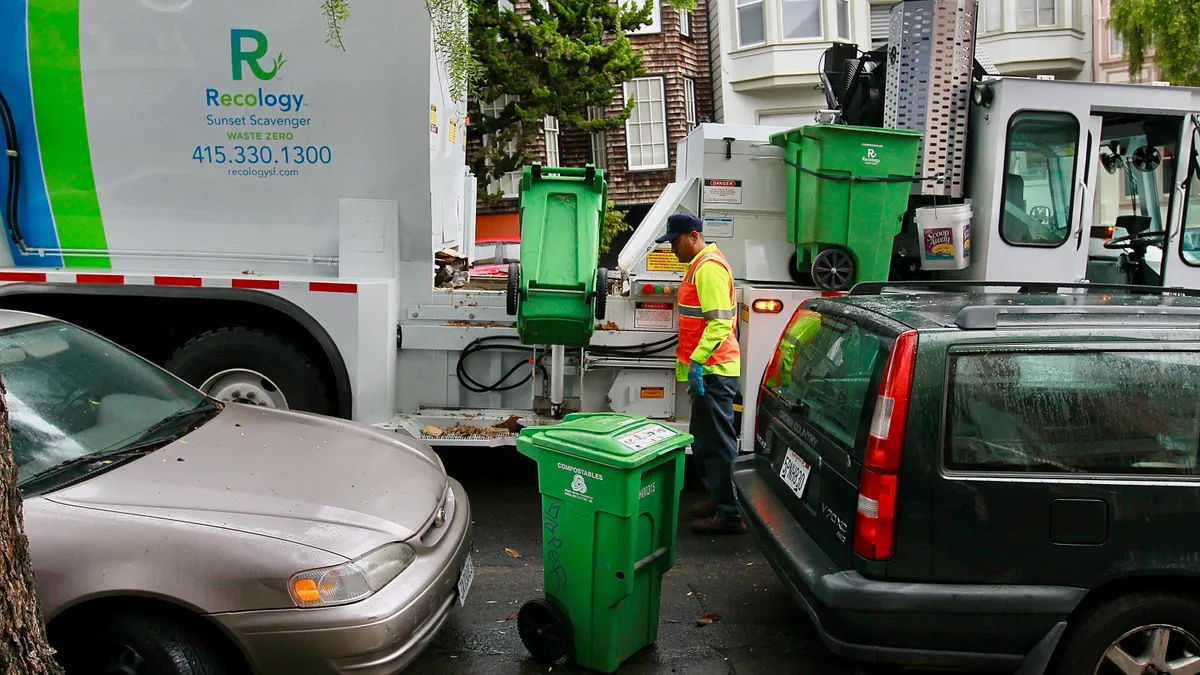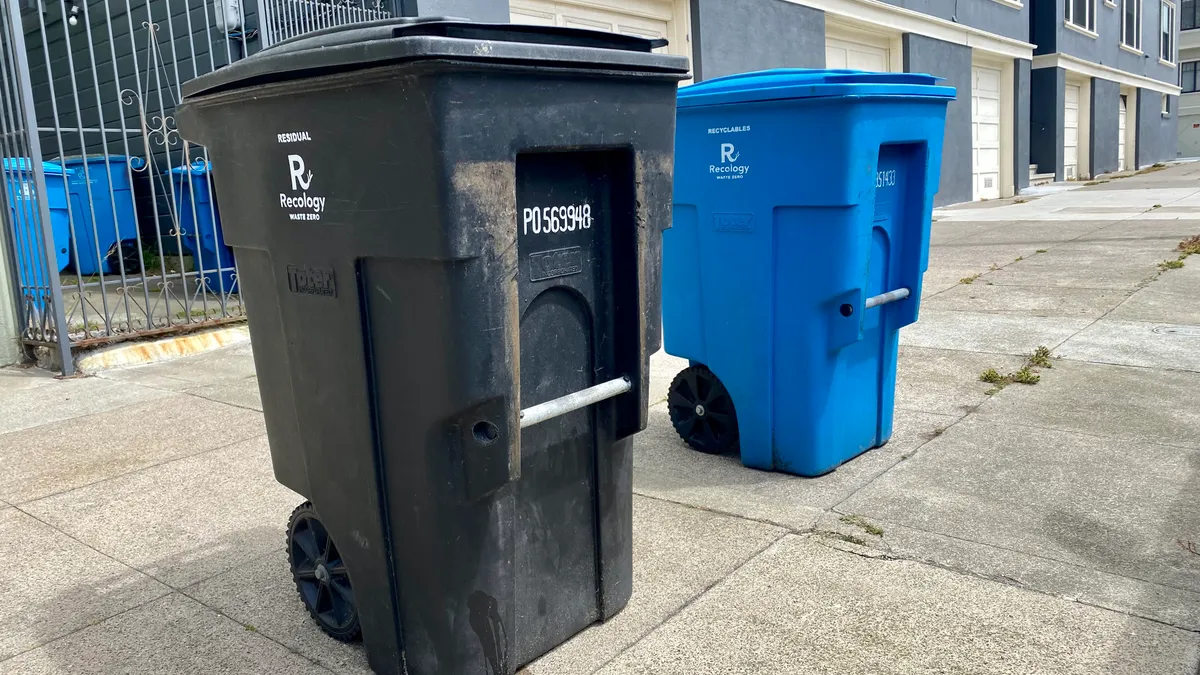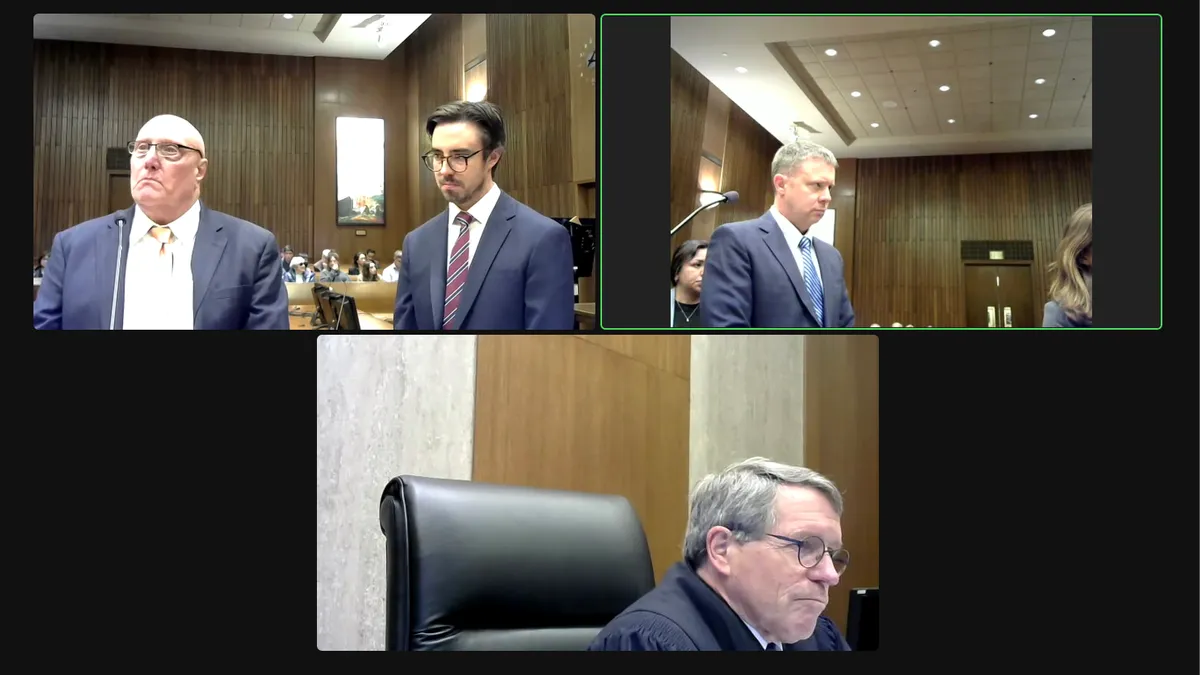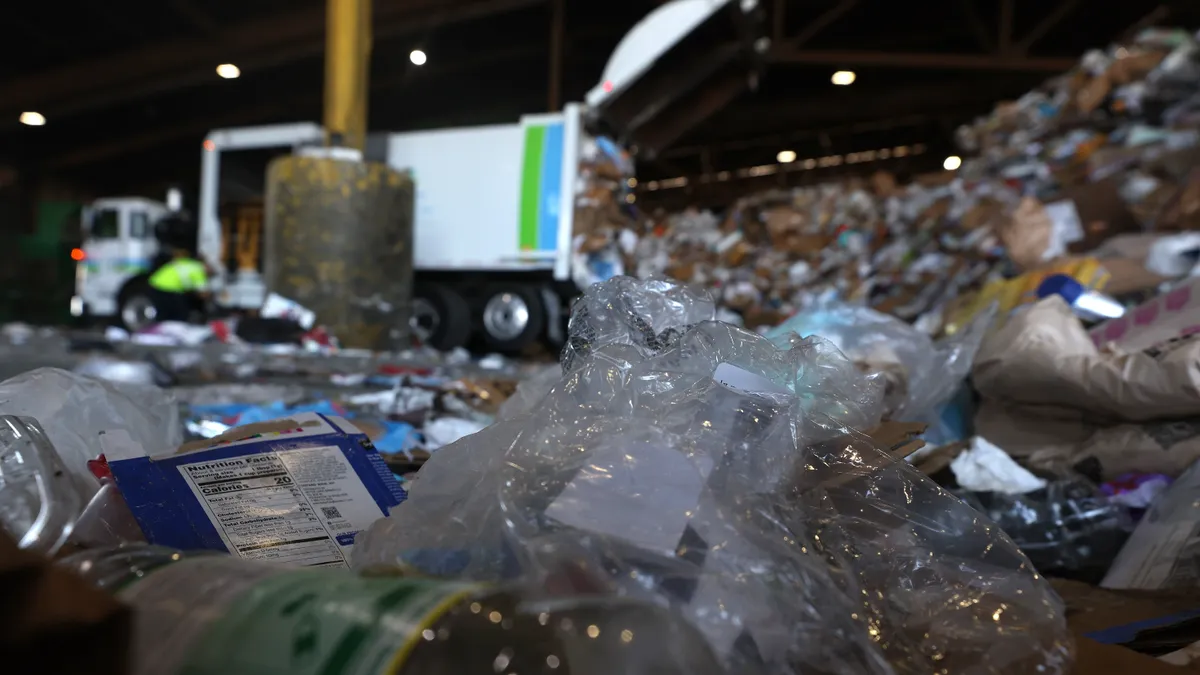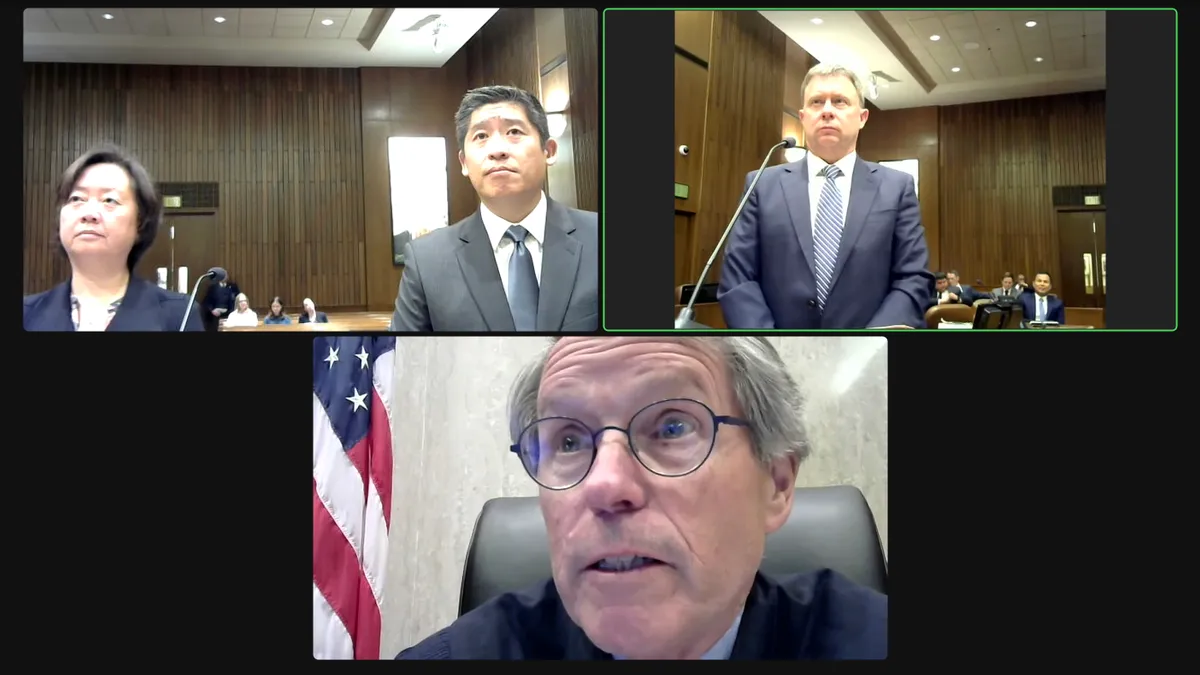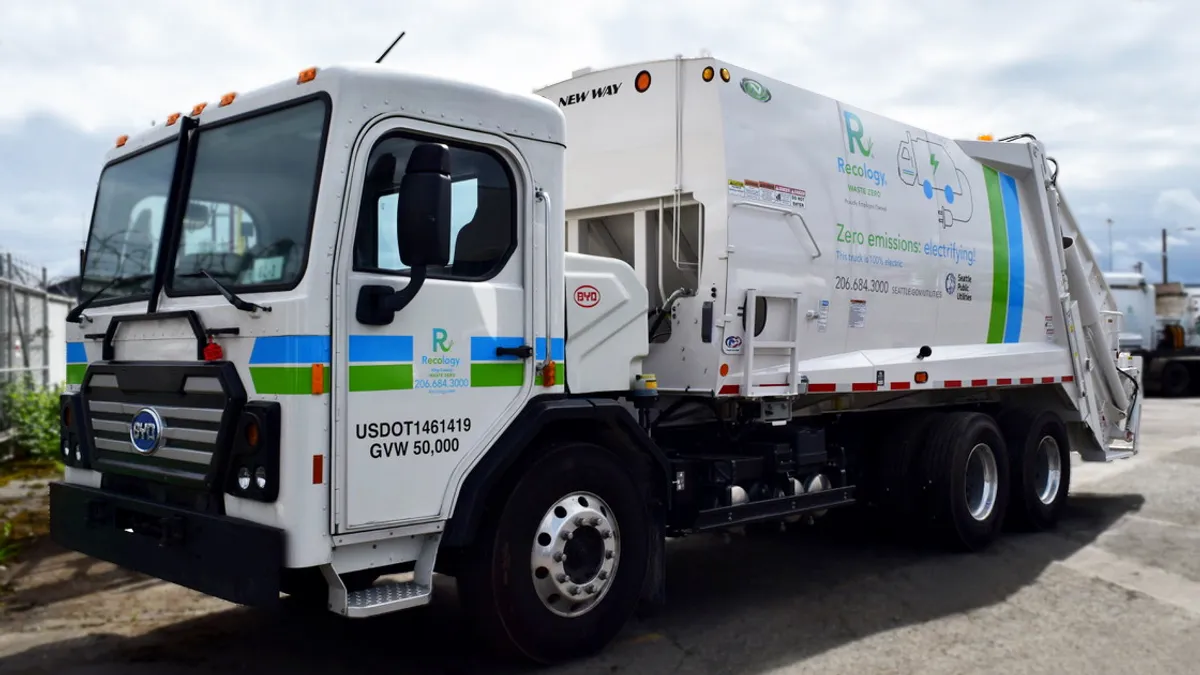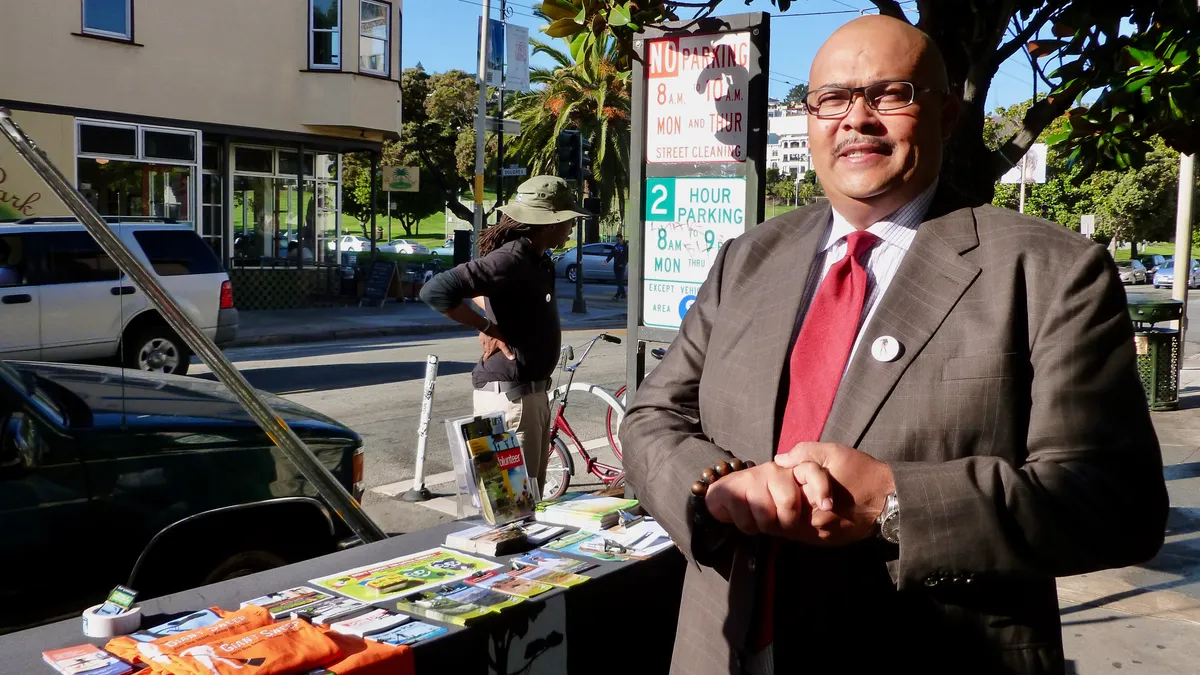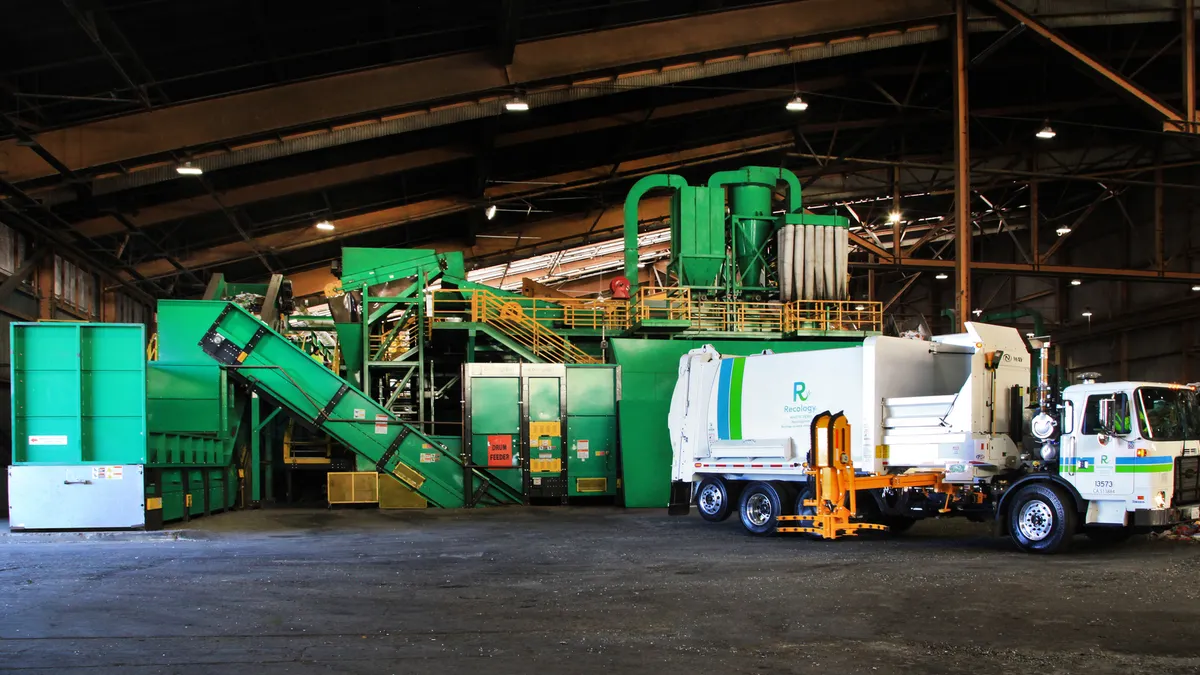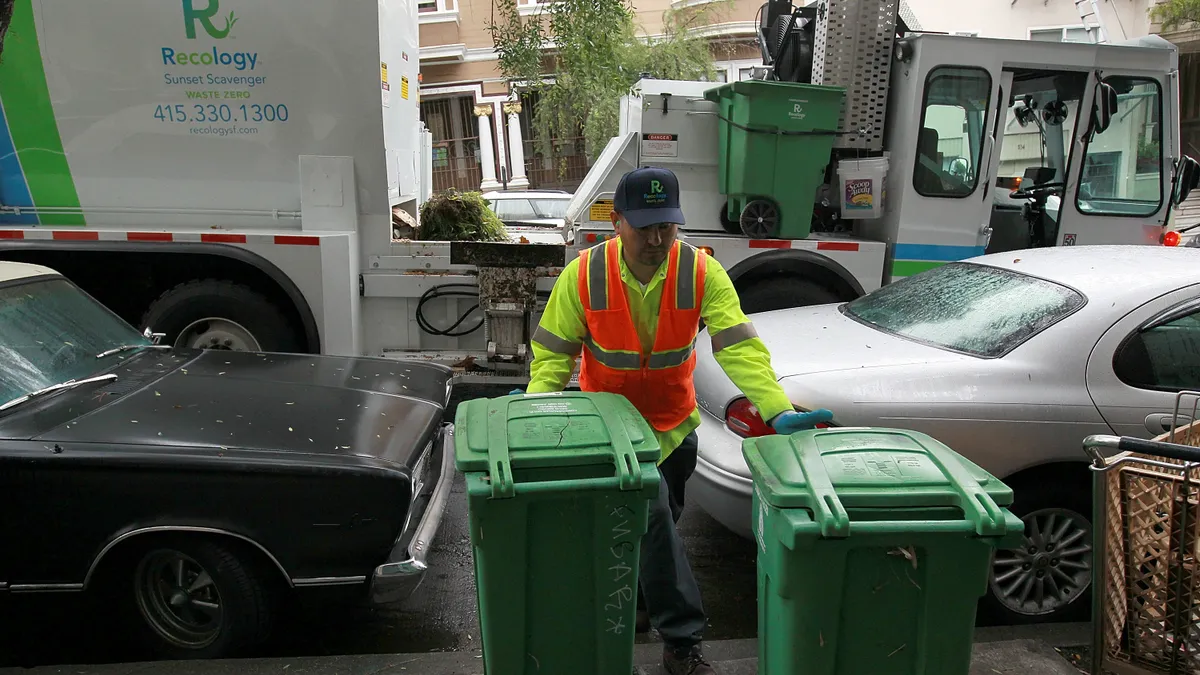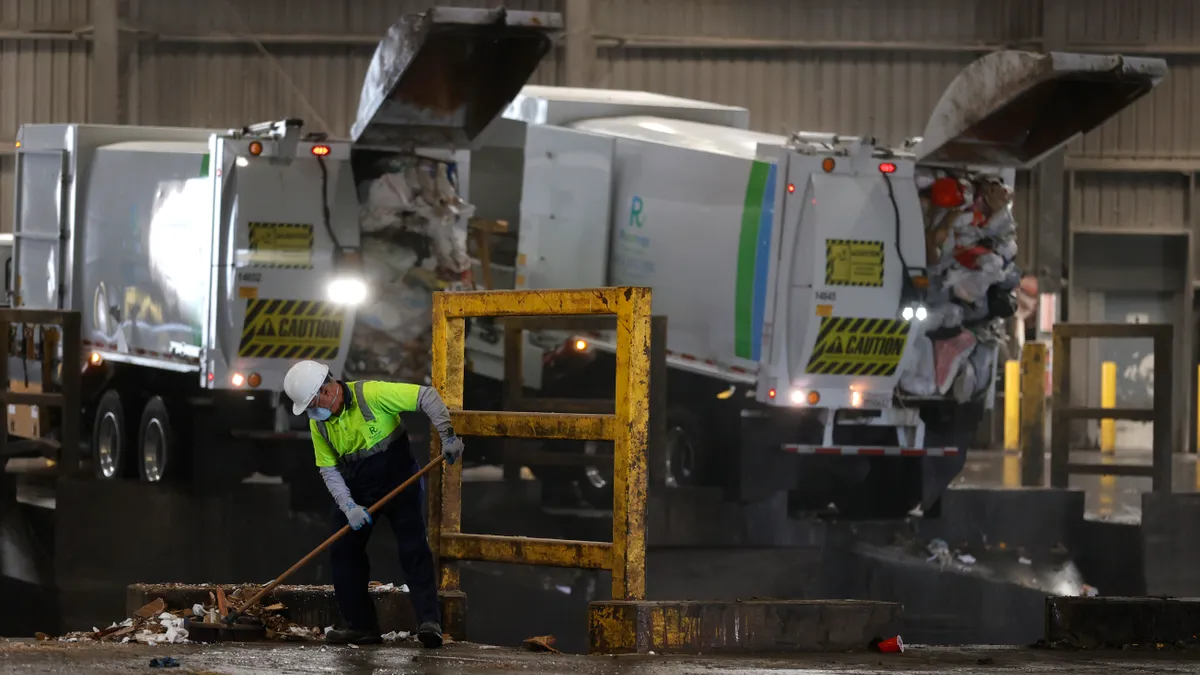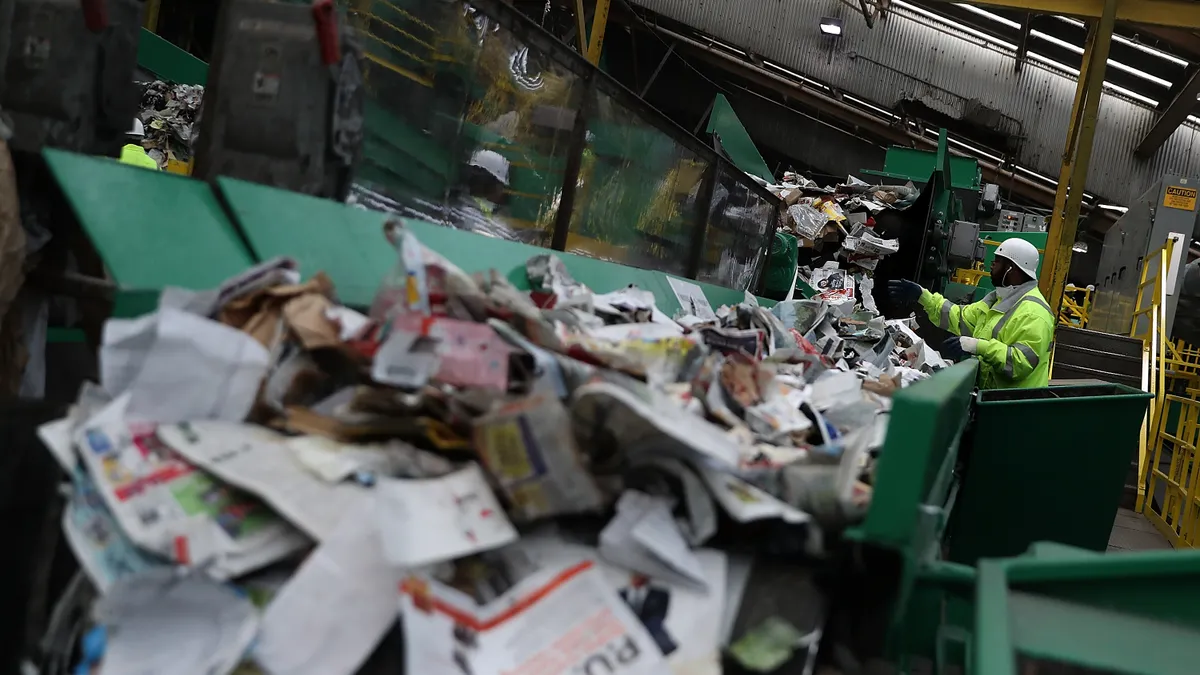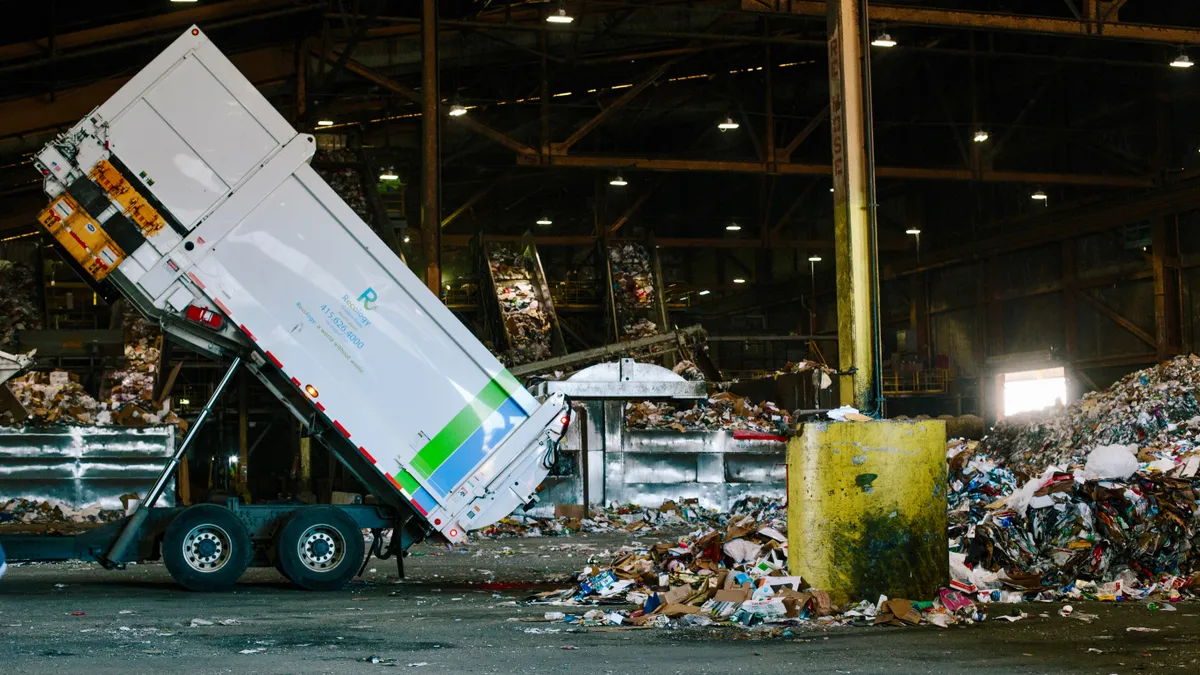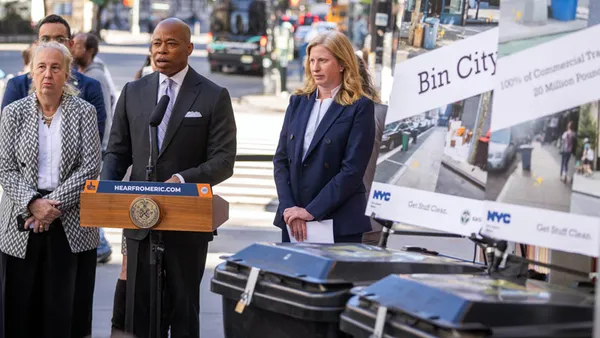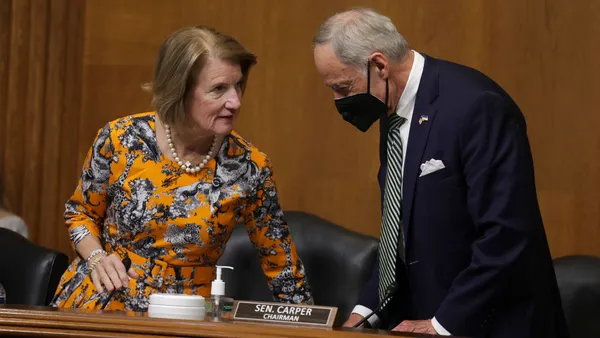Editor’s Note: Waste and recycling are inherently local issues in the United States, and we’re looking for new ways to highlight how these stories fit into broader trends. Send us your tips or feedback at waste.dive.editors@industrydive.com.
San Francisco scandal unfolds
The ongoing public corruption investigation in San Francisco now includes a second former Recology employee, as local officials continue discussions about potentially revisiting the company’s lock on providing city services that dates back to 1932.
John Porter, former vice president and general manager of Recology’s San Francisco Group, was charged Thursday with one count of bribery and one count of “laundering the proceeds of honest services fraud” in a new complaint from the U.S. Attorney’s Office for the Northern District of California.
According to the complaint, Porter allegedly approved a “continuous stream of money and benefits” to former Public Works Director Mohammed Nuru in an effort to raise tip fees at Recology’s Sustainable Crushing facility in 2018 and take other favorable actions for the company. Nuru was arrested in January 2020 as part of a broader investigation that has now led to charges against 11 people.
One of those people is former Recology employee Paul Giusti, who was charged last November for allegedly directing an estimated $1 million worth of benefits to Nuru in various forms over the years in exchange for favorable treatment in residential rate negotiations. The new complaint alleges Porter approved and directed many of these actions. The complaint also mentions the involvement of other Recology employees, including the company’s former chief operating officer, but no additional charges have been filed.
Porter’s first court appearance is next week, and Giusti is due for another appearance in late May following multiple reschedulings.
Recology declined to comment on the latest charges or on a new report from the San Francisco City Controller highlighting issues that recently led to a more than $100 million rate settlement.
“In recent months, even before the settlement with the City Attorney, Recology began implementing further processes, trainings, and controls throughout the organization. Nothing matters more to us than our relationships with our customers, and we know we have a lot of work to do to regain their trust,” said spokesperson Robert Reed via email.
The controller’s report contains multiple recommendations for rethinking the rate process and says the city’s mayor and Board of Supervisors “should consider whether the 1932 Refuse Collection and Disposal Initiative Ordinance and the City’s arrangement with Recology continue to provide optimal benefits to ratepayers or whether another business model should be employed.” Any change to that ordinance is expected to need voter approval.
Certifying cities
Despite the pandemic, some communities have continued to take steps toward achieving a variety of sustainability and waste diversion goals. Recent examples include a climate action plan Bethlehem, Pennsylvania, unveiled this week that targets zero waste by 2040, while Austin, Texas, publicizes steps to support circular-oriented businesses and Charlotte, North Carolina, develops zero-waste infrastructure.
Pursuing certain official certifications can be viewed as a way to solidify progress on goals. One years-in-the-making certification that continues to move forward is the Solid Waste Environmental Excellence Performance, or SWEEP, set of standards. The multi-stakeholder organization targets a range of operators across the waste industry, including municipalities.
Amid the public health challenges of 2020, “There wasn't any sort of conscious policy backing off,” said Rob Watson, SWEEP founder and co-chair. Still, “There [were] de facto cutbacks in all levels of service around material management. But I think people are very eager to get back to it."
SWEEP is seeking municipal governments to fill about half the slots in its planned 30-participant pilot program. SWEEP expects the pilot will be full by year’s end, and that some entities will also be certified by that time, having had the year prior to collect data.
As for the mix of participants SWEEP already has, a list that includes El Paso, Texas, “we have folks that are pretty clear that they feel like they've done a pretty good job and they want recognition for it,” said Watson. “Others have aspirations, and they're looking to SWEEP to provide some structure and a guidepost for them [to deliver] on their aspirations.”
SWEEP will next plan a standard that certifies zero waste practices.
The U.S. Green Building Council has operated a standard the last few years known as TRUE, which, rather than assessing municipalities, measures the zero-waste efficiency of individual facilities, construction projects and events.
“I do think it's really promising how much we've seen the response from the more corporate sector, that even though [states] have really had to pull back on some of their sustainability goals, the corporations are ramping up,” said Celeste McMickle, director of client solutions for TRUE, noting the rise of investor-driven pressure in that realm.
One recent TRUE participant is Battery Park in New York City, which registered last fall and may end up being the first public park to achieve the certification, an effort that could contribute to the city’s aspiration of zero waste by 2030. Likewise, the public New York Power Authority has a host of sites it has registered for certification.
While TRUE doesn’t certify cities, more cities could issue guidelines for businesses to pursue.
As for municipalities taking the lead, “we have a really good example of that with LEED certification where in certain municipalities, all of the municipal buildings are required to achieve LEED certification,” she said. “So I think a next step, especially for the cities that have zero waste goals, would be for those municipal buildings to achieve zero waste certification within their own facility to then be able to help showcase that to the community and that they're making the effort and that the community should follow suit.”
On the whole, “I think overall the awareness that we're seeing surrounding these issues has really grown a lot,” McMickle said. But for both SWEEP and TRUE, building awareness remains a key part of the puzzle. “I think in many ways we still consider ourselves to be kind of like a startup program” she said.
Upstate/downstate debate
Exporting New York City’s waste has long been a contentious topic for communities receiving it, especially upstate neighbors. Waste Management handles a large amount of residential waste at its High Acres landfill outside of Rochester via a long-term contract with the Department of Sanitation (DSNY), and one of the host communities now hopes to change that.
A newly proposed agreement from Perinton, where the landfill is located, calls for reducing the amount of city waste transported by rail to pre-2017 levels and limiting the age of that waste. Town Supervisor Ciaran Hanna declined to comment further, citing ongoing negotiations.
“We are confident that we will reach a mutually acceptable Host Community Agreement and remain committed to addressing any concerns raised by the community,” said Garrett Trierweiler, senior manager of public affairs for Waste Management, via email.
Tensions between municipalities generating waste and those receiving it aren’t new, but this comes after Waste Management finalized a class action settlement with area residents in December that included a $1.3 million payment and plans for substantial infrastructure improvements.
A separate suit brought by area residents against Waste Management and DSNY remains ongoing. The two declined to comment on that suit, and an attorney for the plaintiffs could not be reached for comment. More broadly, DSNY said it anticipates the city’s disposal needs will still be met.
“Our long-term export contracts include a number of disposal facilities. We expect all of our vendors to meet the terms of their contracts to provide for reliable disposal of municipal solid waste, including complying with all applicable federal, state, and local regulations,” said DSNY Director of Communications Belinda Mager via email.
More updates from around the country:
-
Contract Fights: Waste Management threatened to sue Thousands Oaks, California – citing an open meetings law violation – after the city selected Athens Services for a new contract. AAA Carting is suing Patterson, New York, as well as Suburban Carting, over an alleged bid revision that led to its competitor winning a contract. (VC Star / Westchester Business Journal)
-
Contract Changes: Republic Services recently won out over EDCO in Carlsbad, California, to take over from Waste Management. Aberdeen, Maryland, recently voted to privatize residential collection via a new agreement with GFL Environmental. (The Coast News Group / Baltimore Sun)
-
Labor News: Pittsburgh municipal collection workers represented by Teamsters Local 249 will see wage increases and other changes following a contract agreement. In Cumming, Georgia, collection workers with Teamsters Local 728 approved their first contract with Republic Services after a multiyear effort. (Pittsburgh Post-Gazette / PR Newswire)
-
Memphis Mayor Jim Strickland officially ended the city’s collection contract with Waste Pro over the weekend and has brought in Team Waste as a temporary contractor. (Commercial Appeal)
-
San Antonio anticipates residential recycling costs could increase by an estimated $960,000 per year after a new contract takes effect in 2024. The current Republic Services contract was negotiated with subsidiary ReCommunity in 2014. Waste Management, FCC Environmental Services and Balcones Resources are also interested. (San Antonio Report)
-
San Jose, California, is facing a multimillion-dollar cost increase from service providers and a likely rate increase for residents due to significant waste volume shifts during the pandemic and residential contamination rates reaching as high as 50%. (San Jose Spotlight)
-
Franklin County, Tennessee, is looking at building a rail transfer facility instead of a waste-to-energy facility due to costs being higher than expected. While disposal tip fees have risen notably in recent years, officials hope to find lower prices in neighboring Alabama or Georgia. (Herald Chronicle)
-
Weymouth, Massachusetts, recently approved spending nearly $1 million to demolish an incinerator that hasn’t been active since the late ’70s on property that has largely been dormant since the ‘90s. (The Patriot Ledger)




